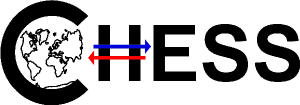Between September 4 and 10, the 2022 summer school on glacier-climate change – with a particular focus on surface change in a warmer and wetter Arctic – took place in northern Iceland. The course involved contributions from researchers from UiB, UiT, as well as Manchester Metropolitan University in the UK. The main ambition was encouraging the 10 PhD and Postdoctoral participants to embrace inter-disciplinarity. To this end, the organizing committee – Willem van der Bilt, Jostein Bakke, Anders Schomacker, Iestyn Barr, and Therese Rieckh – focused on bringing together three different but complementary strands of geological evidence. Observations, in the form of geomorphological landforms like moraines or landslides, but also satellite and drone-derived image timeseries. Simulations, familiarizing participants with the power of models to help understand the drivers of change. And reconstructions, retrieving geological archives of past events to contextualize the present (and future). The latter efforts took the group to the spectacular flood-carved volcanic landscape of the Jökulsá river, where we retrieved sediments from perched lakes that were once flooded by its glacial waters. While some of our equipment got lost in transit, which necessitated the need for creative solutions like the use of paddle boats as a coring platform, the weather was warm and calm. And, in the end and thanks to the enthusiastic help of all, we managed to retrieve a set of spectacular megaflood deposits.
Text: Willem van der Bilt

